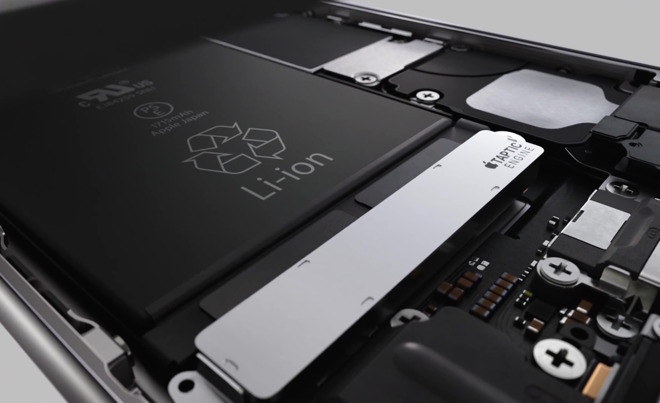Apple's proposed $500 million deal to settle a series of class action lawsuits involving the so-called iPhone slowdown controversy received preliminary approval on Friday, moving the kerfuffle closer to an official conclusion.
U.S. District Court Judge Edward J. Davila in a Zoom call today informed Apple and a number of plaintiffs that he intends to extend final approval deadlines by a few weeks due to the ongoing coronavirus pandemic, reports Law360.
Under terms of the deal, class members, which include iPhone 6, 6 Plus, 6s, 6s Plus, 7, 7 Plus and SE device owners who performed certain software updates, will receive $25 each for their troubles. That payout could reach up to $500 per instance should collective claims and attorneys fees not reach $310 million.
Class counsel is asking for 30% of the $310 million pool, or $93 million, and $1.5 million in expenses.
Calling the agreed-upon arrangement "fair, reasonable and adequate," Judge Davila on Friday gave his initial approval. Attorneys noted turnout for the $25 claims should be high as Apple has email addresses for most members of the class.
Apple's settlement applies to dozens of identical cases that were consolidated in the U.S. District Court for the Northern District of California in 2018. The company was brought to task for false advertising, alleged unfair business practices, trespass to chattels, breach of contract and unjust enrichment for its part in issuing an iOS feature that temporarily throttles iPhone's processors during instances of heavy load. Apple released the hardware management feature in iOS 10.2.1, and all subsequent iOS versions, to mitigate negative effects of aging iPhone batteries, specifically unexpected shutdowns suffered by certain iPhone 6 and 6s devices.
Critics claimed Apple failed to adequately inform users about the feature and its ability to slow down handset performance without user consent. Release notes accompanying the 10.2.1 release state only that the update "improves power management during peak workloads to avoid unexpected shutdowns on iPhone."
A Reddit user ultimately uncovered the CPU throttling function through benchmarking testing, with the results touching off a firestorm of complaints and rekindling rumors of a so-called planned obsolescence scheme.
Further testing from third parties confirmed the presence of an undisclosed throttling process, prompting Apple to issue an apology to iPhone owners for a lack of transparency. To make up for the alleged indiscretion, prices on out-of-warranty battery replacements were cut and the company later introduced a battery health tool that allows users to disable the throttling feature manually.
Multiple class-action lawsuits and government inquiries followed Apple's announcement. After years of legal back-and-forth, Apple and class counsels reached a $500 million deal in March.
 Mikey Campbell
Mikey Campbell




-xl-m.jpg)


-m.jpg)






 Chip Loder
Chip Loder
 Thomas Sibilly
Thomas Sibilly
 Wesley Hilliard
Wesley Hilliard
 Christine McKee
Christine McKee
 Amber Neely
Amber Neely
 William Gallagher
William Gallagher
 Malcolm Owen
Malcolm Owen








22 Comments
Class action = lawyers make money. I have two phones eligible, but honestly don’t feel Apple wronged me - I’d rather have my phone slow down than shut off unexpectedly. I understand that technology ages quickly and must be replaced fairly often a that’s just part of the deal. My brother is an Android user. Lucky if he gets three years out of them. I still have an iPhone 6 humming along after nearly 6 years - I don’t feel that the phone nor Apple owes me anything.
Ridiculous, but I'll cash my $50 or $75 check when it comes. Hundreds of millions of dollars for the lawyers. Justice!
Class Action should only be allowed after a successful criminal trial. 93 million plus 1.5 million for expenses. Really!
Tim probably never thought he'd have to use one of his $500 million dollar fly swatters to scare these blood sucking pests away, but alas, he did.
Good thing he still has a rack of them ready for the next invasive swarm.
Pest control is just a cost of doing business.
Shocking, the lawyer get more money than the “victim”. How is that even possible in a moral world.